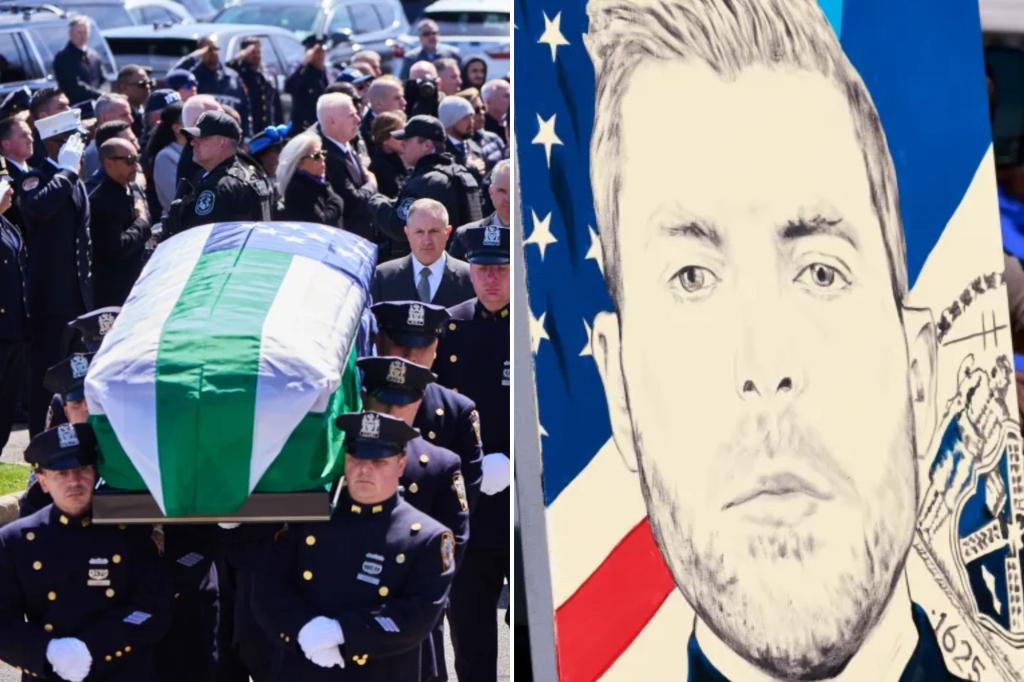Stephanie Diller’s emotional plea at her husband, Detective Jonathan Diller’s funeral for better protection for police officers was not given much attention by The New York Times. The widow’s heartbreaking words, calling for change and pointing out the sacrifices made by others before her husband, did not receive the front-page coverage it deserved. Despite being featured in other newspapers, the Times relegated the story to page A21 with no mention on the front page. This decision to downplay the widow’s appeal highlights the newspaper’s biased agenda and lack of focus on important news.
The Times chose to focus on a different angle of the story, highlighting the political reactions to the killing rather than the widow’s powerful speech. The article included quotes from people criticizing public safety policies promoted by New York Democrats and how some people, particularly Republicans, viewed the incident as emblematic of lax laws. This shift in focus away from the widow’s plea and towards political commentary showcases the newspaper’s bias and disregard for highlighting important voices in the community.
While the widow’s eulogy was quoted in the Times’ article, her most powerful appeals for change and accountability were left out. Despite the article running over 1,100 words in the online version, the crucial message from the widow was omitted. This decision to exclude the widow’s call for action demonstrates the Times’ prioritization of certain narratives over others, ultimately affecting the quality and integrity of their reporting.
The widow’s impassioned speech, referencing the sacrifices made by other fallen officers and the impact on families left behind, should have been front and center in the coverage of Detective Diller’s funeral. Her words resonated with many, including those in other newspapers that gave her story the attention it deserved. However, the Times’ decision to bury the story and focus on political angles instead reveals a lack of sensitivity and nuance in their reporting, potentially alienating readers who value diverse perspectives and voices in the news.
By failing to highlight the widow’s plea for change and better protections for police officers, the Times missed an opportunity to elevate an important and timely issue. The widow’s call for action should have been given more prominence in the coverage of Detective Diller’s funeral, as it represented a powerful and poignant moment in the community. The Times’ decision to prioritize political commentary over the widow’s emotional appeal reflects a deeper issue of bias and agenda-driven reporting that undermines the newspaper’s credibility and integrity.
In conclusion, the New York Times’ decision to downplay the widow’s plea at Detective Jonathan Diller’s funeral highlights a larger problem of biased reporting and lack of sensitivity to important community voices. By focusing on political angles rather than the emotional and impactful words of the widow, the Times missed an opportunity to shed light on an important issue. This failure to prioritize meaningful stories and diverse perspectives ultimately undermines the integrity and trustworthiness of the newspaper, alienating readers who seek more balanced and nuanced reporting.


